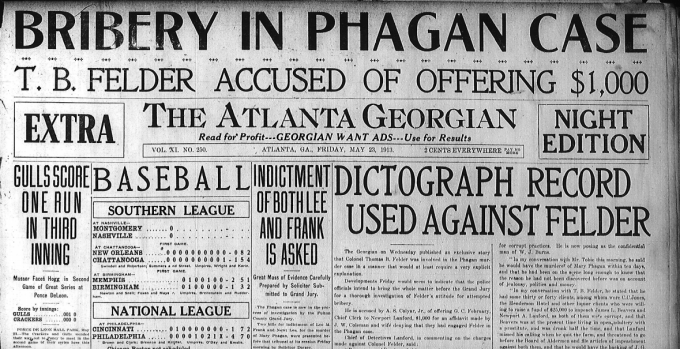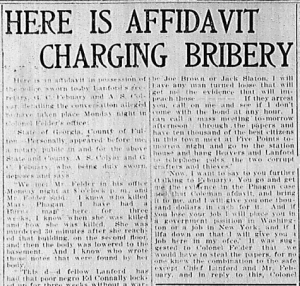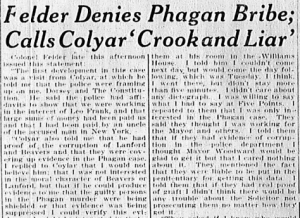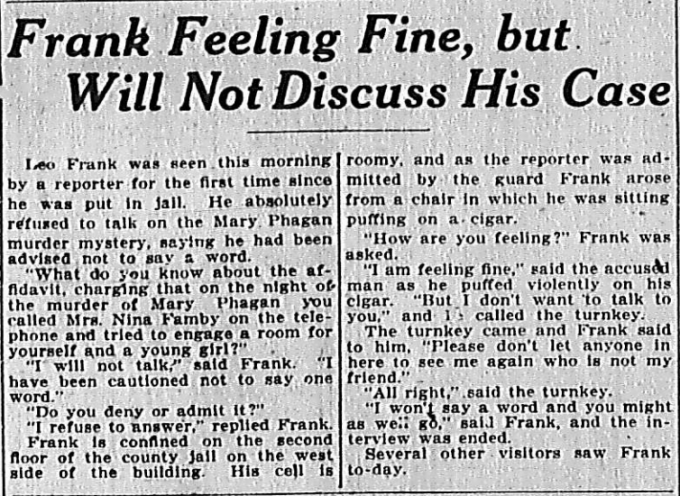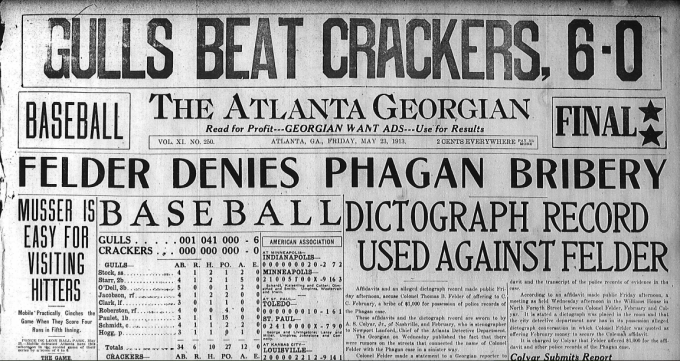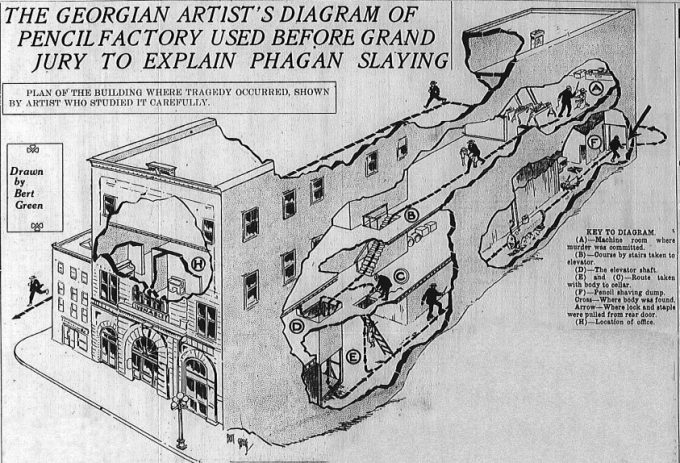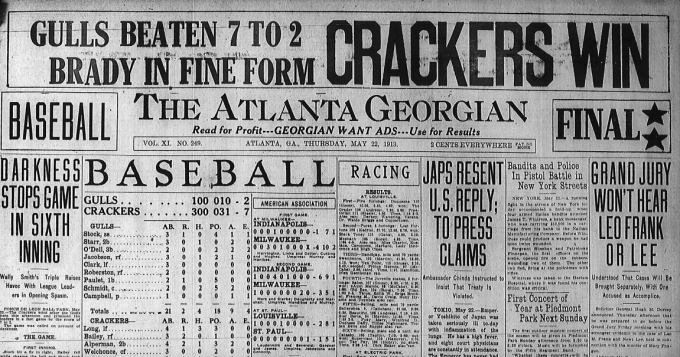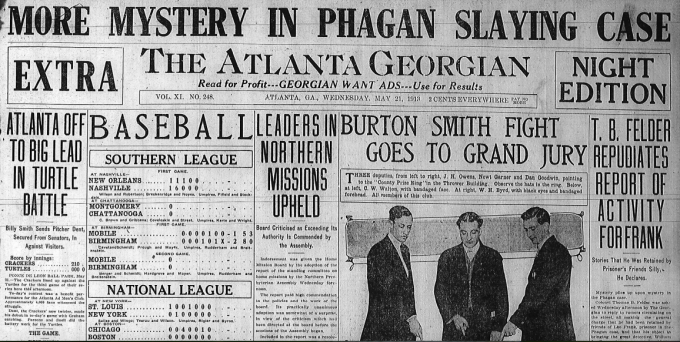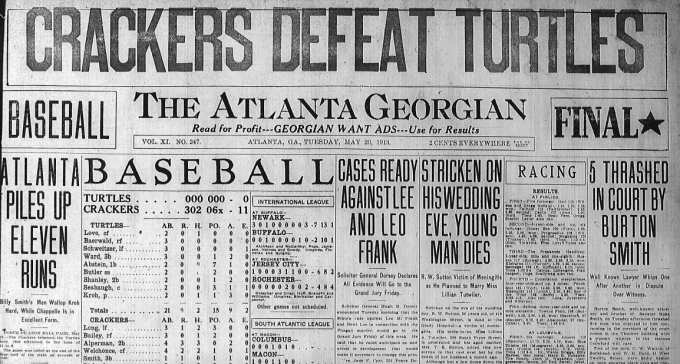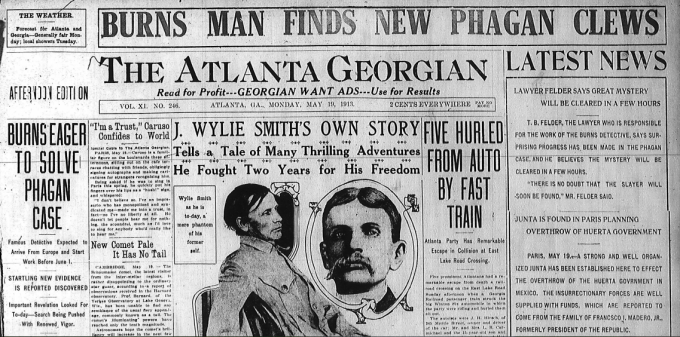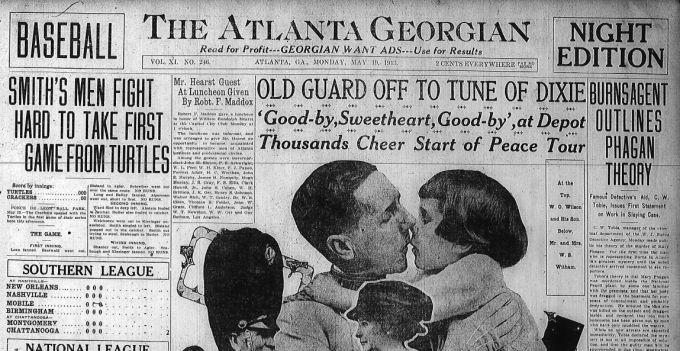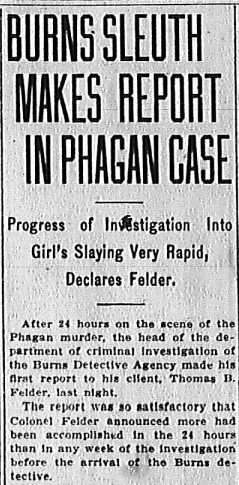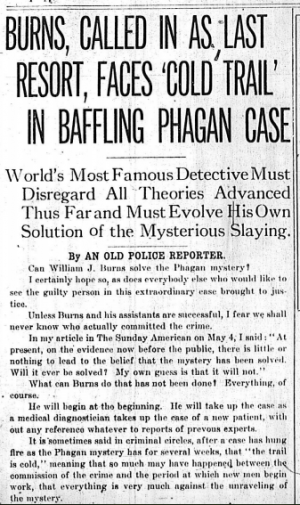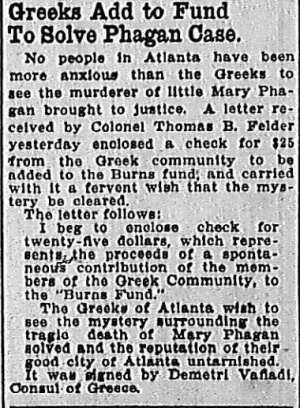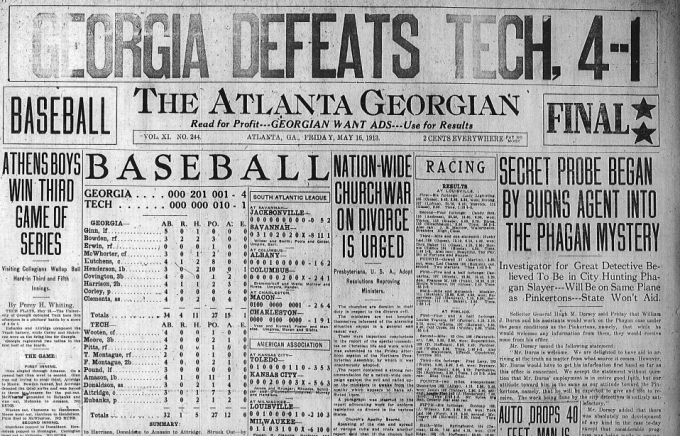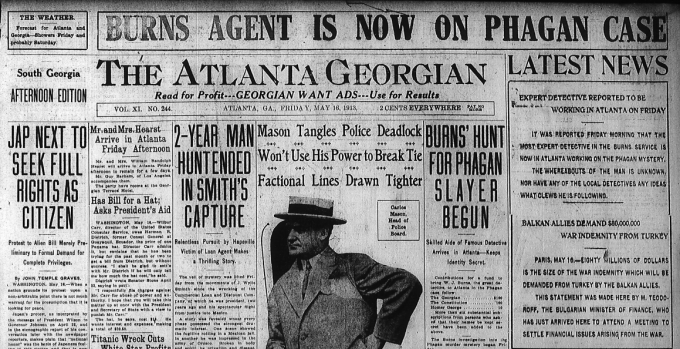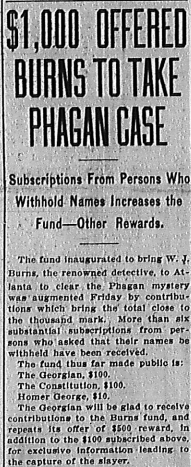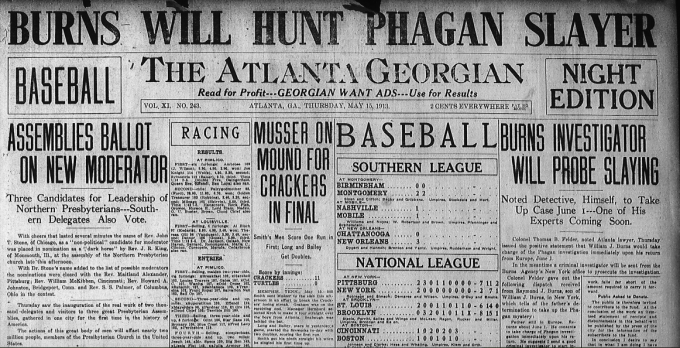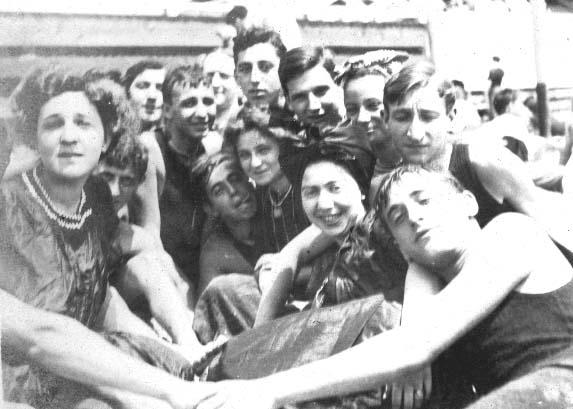Another in our series of new transcriptions of contemporary articles on the Leo Frank case.
Atlanta Georgian
Friday, May 23rd, 1913
The Georgian on Wednesday published an exclusive story that Colonel Thomas B. Felder was involved in the Phagan murder case in a manner that would at least require a very explicit explanation.
Developments Friday would seem to indicate that the police officials intend to bring the whole matter before the Grand Jury for a thorough investigation of Felder’s attitude for attempted bribery.
He is accused by A. S. Colyar, Jr., of offering G. C. February [sic], Chief Clerk to Newport Lanford, $1,000 for an affidavit made by J. W. Coleman and wife denying that they had engaged Felder in the Phagan case.
Chief of Detectives Lanford, in commenting on the charges made against Colonel Felder, said:
“Premature publication of this matter has so upset my plans that at this time I can not sayy [sic] what action I will take. Justice has been thwarted. I will have to think the situation over. I shall not arrest Colonel Felder at present.” Continue Reading →

